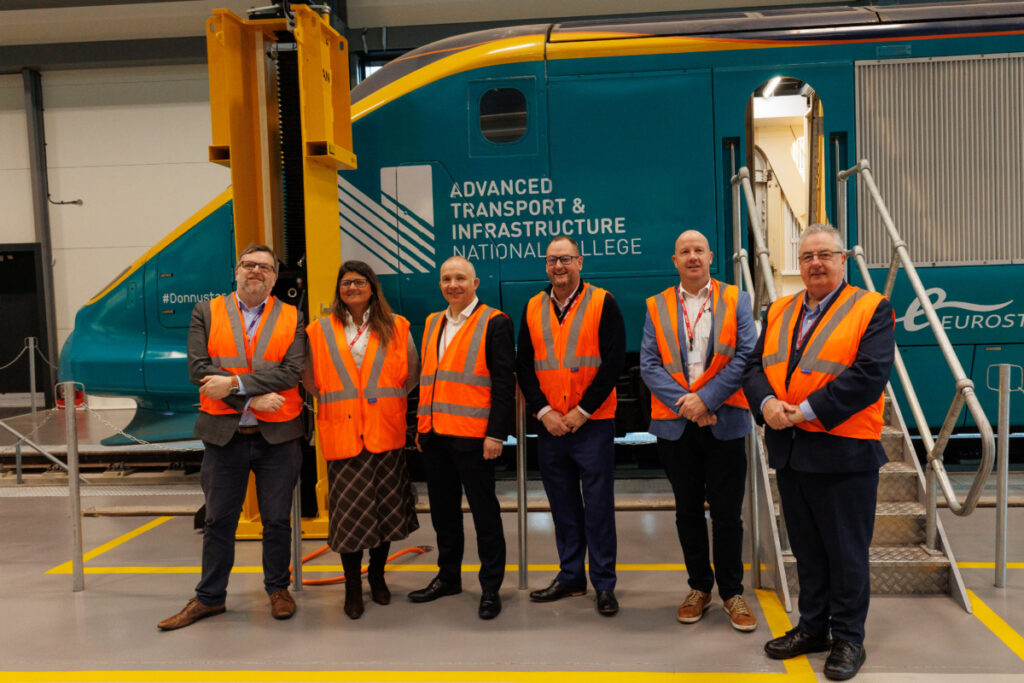Solving the ‘communications disconnect’ and establishing clearer and more diverse career paths will be key to attracting new talent to the rail sector, according to industry commentators who attended a recent roundtable discussion on combating the sector’s impending skills shortage.
The roundtable – hosted at the National College of Advanced Transport and Infrastructure (NCATI) in Doncaster by CWE Ltd, the leading independent supply, maintenance and logistics partner for the rail industry – saw sector experts and academia come together to debate the barriers to rail as a career choice and what needs to be done to overcome these challenges.
Attendees included John Hall of Davis Wagon Services, Christine Fernandes of CAF and Women in Rail, Will Rogers from East Midlands Railway, NCATI’s Alec Gillham, and Barry Smith, Head of Assessment and Skills at the National Skills Academy for Rail (NSAR).
The findings from the discussion are detailed in a new report – Keeping Talent on Track: Addressing the skills shortage in the rail sector – which identified seven key actions to take:
- Breach the communications gap: Forging closer alliances between colleges, skills organisations, and industry so qualifications meet the needs of all stakeholders.
- Share expertise to better engage: Better collaboration to help businesses learn from each other to increase recruitment into the sector.
- Engage the wider workforce: Senior leadership to encourage the full workforce to champion the sector and create positive workplace cultures.
- Campaign for clearer national strategies: Government to update and make its Industrial Strategy and Rail Strategy fit for purpose to help address the skills gap in the industry.
- Learn from other sectors: Engaging with organisations and industry bodies in similar sectors, such as utilities, aerospace and manufacturing can help companies in the rail industry to learn and apply new thinking.
- Celebrate diversity: Combat rail’s image problem by showcasing the variety of careers available and the important role the sector plays in the UK, including its contribution to the green agenda, to attract a more diverse workforce.
- Better signposting for career pathways: Reduce complexities around access to apprenticeships and where to go for career progression opportunities.
Nick Andrew, Managing Director at CWE, said: “As an industry, it feels like the skills shortage is something we’ve been talking about for a while. Talking being the key word. And that’s fantastic – it means that together we’re all raising awareness of the issue, and there’s universal agreement that it’s a problem.
“But, the statistics show that time is of the essence. A City & Guilds and NSAR report found that up to 120,000 additional people will be required by 2030, with demand for skills peaking around 2025. And, just a third (32%) of respondents say they would consider a career in the rail sector. This is particularly acute amongst women, young adults and people from BAME backgrounds.
“At CWE, we’re passionate about the industry we are a part of, and we’re committed to doing what we can to employ apprentices and showcase the variety of options a career in rail can provide. And, as a former apprentice myself, it’s something that I personally feel strongly about. That’s why we want to put our hand up and lead a collective effort to convince the next generation, and those from all backgrounds, that choosing rail will give them the pride and career satisfaction they seek – only then will we solve the looming skills crisis.
“That’s why I’m so grateful to my colleagues from across the industry for taking part in this roundtable event. We’ve gotten the ball rolling and the report outlines some clear actions to take.
“Now it’s up to us to keep this momentum going – we believe rail is a desirable and rewarding career for young people and those from all backgrounds. The time for action is now.”
The report – Keeping Talent on Track: Addressing the skills shortage in the rail sector – can be downloaded here.

